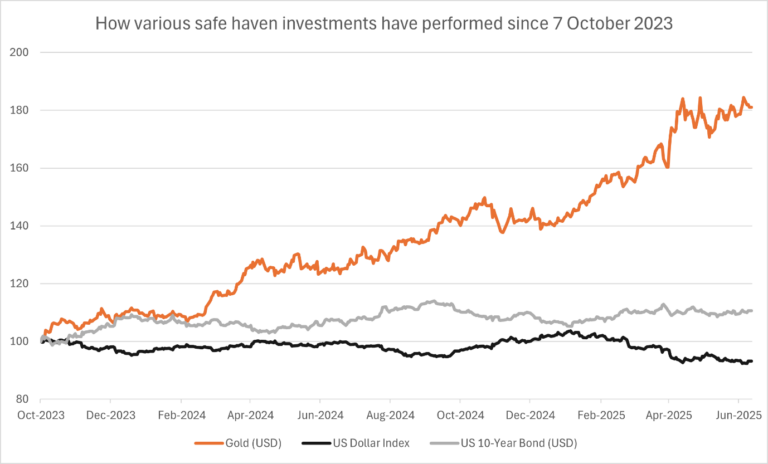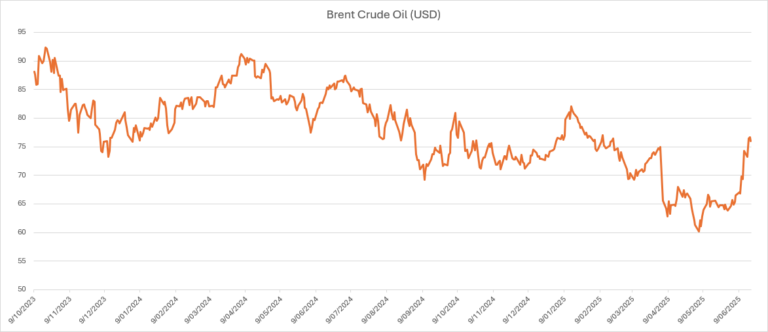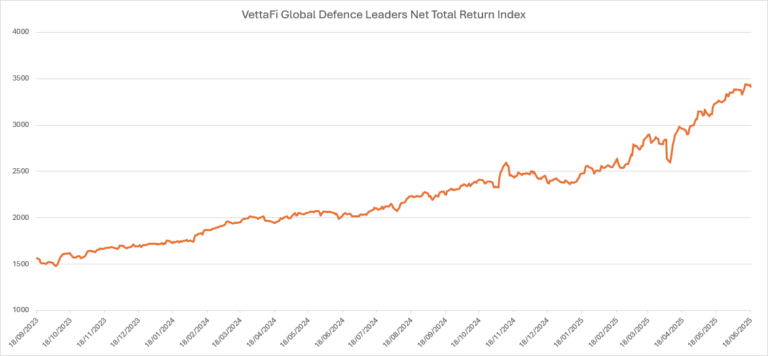Where does the Israel-Iran crisis affect markets most?
The latest chapter in the ongoing crisis in the Middle East continues to be written as we speak.
Over the weekend, the US launched air strikes on three Iranian nuclear sites and threatened more if the Iranian government did not agree to a peace deal1. These most recent actions follow a series of air strikes which Israel launched last week – also on Iranian nuclear and energy infrastructure2. While the Iranian government initially vowed retaliation,3 a ceasefire between Israel and Iran was quickly reached4.
These developments – and their rapidly evolving nature – may have caused many investors to wonder whether they should pivot their strategies. This includes investing in some reliable safe havens as well as other assets that have a history of reacting to heightened geopolitical conflict. But not all these investments are reacting in the same way.
What do investors buy when black swans occur?
Black swans, which are unpredictable or unforeseen events, often hit markets when they least expect it. In these scenarios, investors could be drawn to a specific group of defensive assets called “safe havens”. A safe-haven asset is an investment that is likely (but not guaranteed) to retain or increase in value during market turbulence. It is particularly valuable during moments like this – when the latest market trigger was largely unforeseen by many investors.
Safe haven assets earn their title because their performance is generally uncorrelated (or negatively correlated) to equity markets.
What are examples of safe havens?
Some of the most well-known safe havens are gold, cash and US government bonds.
In the case of gold, it is a physical commodity so it can’t be printed. Gold is a traditional hedge against adverse economic and geopolitical events given it has historically maintained its value over time. Retail investors can access gold either through holding the physical asset or through an array of gold-related ETFs.
US government bonds are backed by the full faith and credit of the US government. The principal you’ve invested will (generally speaking) be repaid by the government when the asset matures. While no government, including the US, is default-proof5, investing in American public debt is traditionally considered a safe haven. Australian investors can access US bonds through ETFs.
Finally, there is cash. Holding cash, especially in safe haven currencies like the US Dollar, is a popular strategy among investors during times of distress. Of course, everyday investors also have the option to hold cash through the term deposit market. The only challenge is that cash rarely keeps up with rising prices nor does it offer any real return6.
How has each safe haven performed?
The following chart looks at the performance of gold (in US dollars), the performance of the US 10-Year bond and the US dollar index since October 2023. It shows that, in the current climate, gold has consistently outperformed the other two safe haven assets.

This divergence is in and of itself unusual. In previous instances of market turbulence, like the 2008 Global Financial Crisis and the Eurozone Debt Crisis of the early 2010s, US bonds and the US dollar have received a lot of investor attention. One reason why this time might be different is because investors are concerned over the US’ rapidly changing trade policy as well as questions over its ability to pay down debt. In these scenarios, having access to currency hedging tools (e.g. through hedged ETFs) could make a difference.
Other assets which have received investor attention
When there is a rise in tensions in the Middle East, investors firmly place one eye on the price of crude oil. Following the Israeli strikes, the Brent crude oil price soared as much as US$18 per barrel from early-May lows. The US air strikes from last weekend added as much as another 5.7% to those prices7. Even if you don’t watch the crude oil price on a daily basis, you’ll sure see the impact of the crude oil price surge at the pump.

More broadly, Bank of America data showed that equity funds globally recorded $10 billion in outflows last week. Meanwhile, bond funds attracted $15 billion in that same time frame8. This gives investors a very clear signal as to where professional investors are moving money. Note it doesn’t mean that they are right – it’s just an indicator of where they think capital is best put to work.
However, below the surface, one area of the equity market that has been the subject of tactical buying from some investors is global defence stocks.
Since 7 October 2023, the VettaFi Global Defence Leaders Index has risen more than 116% (as at 18 June 2025)9 – a clear sign that investors are putting money not just into safe havens but into some of the companies that may most benefit from an increase in global defence spending.

Finally, while there have been outflows from some US assets, there has also been anecdotal evidence of a rotation into other assets (as opposed to just selling and parking in cash). For instance, earlier this year, there was some anecdotal evidence of a rotation into Asian technology stocks. The Solactive Asia Ex-Japan Technology & Internet Tigers Index, which tracks a basket of select Asian technology stocks, is up more than 37% in the last 12 months (as at 20 June 2025)10.
Safeguard your investments with safe havens
It’s important to note that any number of events could spark a rush into safe havens. In addition, geopolitical events can have a huge impact on markets where that impact can disappear as quickly as it occurred. But tail risks of all forms do occur and given that, safe havens like cash or gold have a place in many investors’ portfolios.

